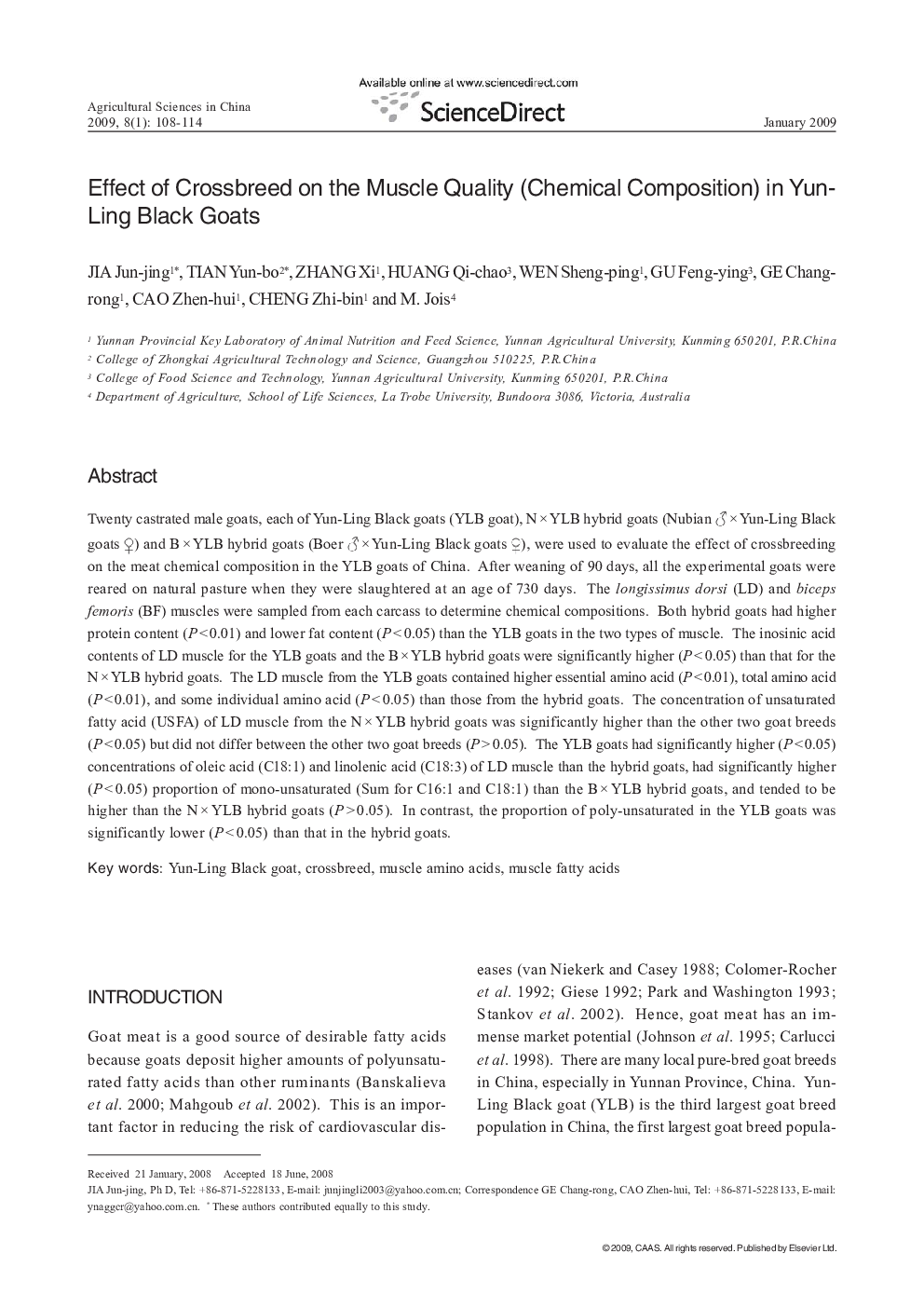| Article ID | Journal | Published Year | Pages | File Type |
|---|---|---|---|---|
| 4490493 | Agricultural Sciences in China | 2009 | 7 Pages |
Twenty castrated male goats, each of Yun-Ling Black goats (YLB goat), N×YLB hybrid goats (Nubian ♂×Yun-Ling Black goats ♀) and B × YLB hybrid goats (Boer ♂× Yun-Ling Black goats ♀), were used to evaluate the effect of crossbreeding on the meat chemical composition in the YLB goats of China. After weaning of 90 days, all the experimental goats were reared on natural pasture when they were slaughtered at an age of 730 days. The longissimus dorsi (LD) and biceps femoris (BF) muscles were sampled from each carcass to determine chemical compositions. Both hybrid goats had higher protein content (P<0.01) and lower fat content (P<0.05) than the YLB goats in the two types of muscle. The inosinic acid contents of LD muscle for the YLB goats and the B × YLB hybrid goats were significantly higher (P<0.05) than that for the N×YLB hybrid goats. The LD muscle from the YLB goats contained higher essential amino acid (P<0.01), total amino acid (P<0.01), and some individual amino acid (P<0.05) than those from the hybrid goats. The concentration of unsaturated fatty acid (USFA) of LD muscle from the N × YLB hybrid goats was significantly higher than the other two goat breeds (P<0.05) but did not differ between the other two goat breeds (P>0.05). The YLB goats had significantly higher (P<0.05) concentrations of oleic acid (C18:1) and linolenic acid (C18:3) of LD muscle than the hybrid goats, had significantly higher (P< 0.05) proportion of mono-unsaturated (Sum for C16:1 and C18:1) than the B × YLB hybrid goats, and tended to be higher than the N × YLB hybrid goats (P>0.05). In contrast, the proportion of poly-unsaturated in the YLB goats was significantly lower (P<0.05) than that in the hybrid goats.
